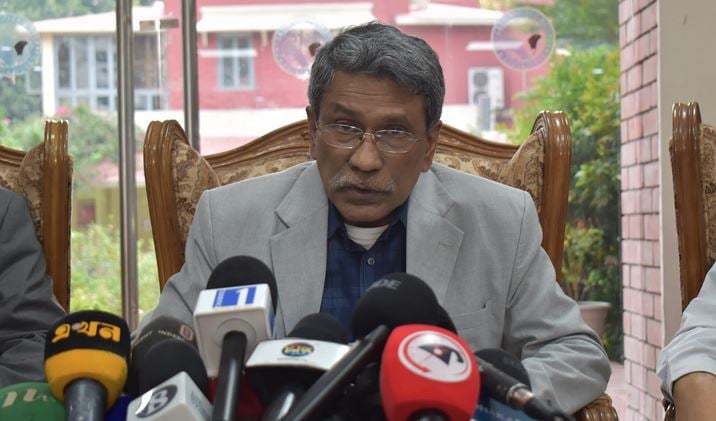Professor Ali Riaz, Vice-Chairman of the National Consensus Commission (NCC), emphasized on Thursday that the primary responsibility for implementing the July Charter lies with the country’s political leadership.
Speaking at the opening of the 23rd day of the second phase of political dialogue, Professor Riaz underscored that while the Commission will play a supportive role, it is the political leaders who must take the lead in executing the agreed-upon reforms.
“In terms of implementation, the key and fundamental responsibility lies with political leaders,” Professor Riaz said in the morning at the Foreign Service Academy in the capital. “We believe that those of you who have reached consensus on various issues can establish the pathway for their implementation. The National Consensus Commission will serve as a catalyst—both formally and informally—in that process.”
He further stated that, if required, the Commission would sit with political parties again to discuss specific implementation mechanisms. A summary of six recommendations from the Commission had already been shared with the participating parties, along with a list of points on which preliminary consensus had been achieved.
Professor Riaz noted, “Today marks the concluding day of the current phase of our second-round dialogue, which has continued for more than two days. There are many agenda items today, particularly those requiring formal decisions. We will inform you of the areas where definitive decisions have already been reached. In addition, some previously undiscussed issues will be brought to the floor today for resolution.
He added that the session would begin with follow-up discussions on topics addressed earlier, including the Public Service Commission, Anti-Corruption Commission, Auditor General, and matters related to Nepal.
Highlighting the progress made so far, Professor Riaz said, “Consensus has been established on approximately 13 issues. In some cases, there was room for notes of dissent, which remains. Any dissenting opinions in today’s session will also be registered.”
Regarding the July Charter text, he informed the participants that the Commission had already received suggestions for amendments and modifications. “Based on those inputs, we are preparing the final text,” he said. “The Charter has two parts—first, the agreed points along with their background, and second, a commitment to engage in future dialogue.”
Expressing hope for concluding the dialogue phase on Wednesday, Professor Riaz said that a complete list of both consensus points and dissenting views would be shared with all parties. A final document would then be prepared and signed by representatives of all participating political entities.
“We want to reach a final resolution today,” he said. “After today’s discussions, we will finalize and circulate the list, and we hope everyone will sign it. That is our goal for today, and we are committed to achieving it.”
Representatives from 28 invited political parties and two political alliances, including the BNP and Jamaat-e-Islami, attended Thursday’s session.
Also present at the meeting were NCC members Safar Raj Hossain, Badiul Alam Majumdar, Emdadul Haque, Iftekharuzzaman, and Ayyub Miah.


